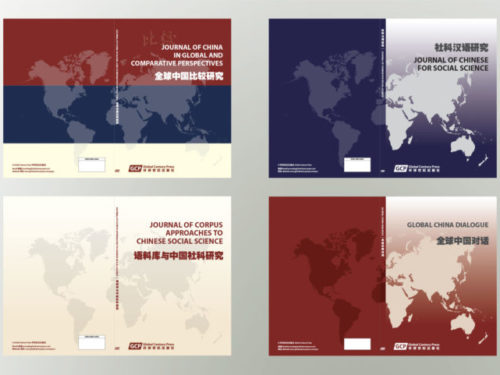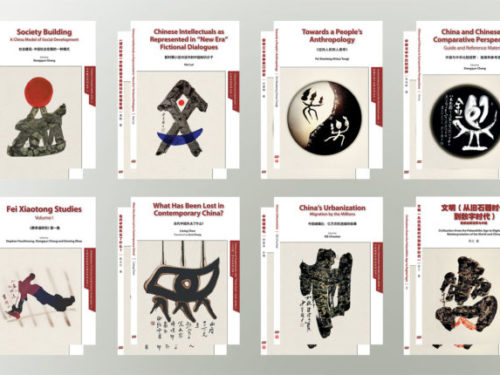

As 2015 is the year of China-UK cultural exchange, many cultural activities are being planned and implemented. The symposium on ‘China-UK Cultural Exchange: Strategic Cooperation and Practical Implementation’ held in Shanghai on December 7, 2014, is one such event. It also served as the preparatory meeting for the establishment of the ‘Global China Dialogue’ series of forums. This event invited people from various fields to discuss relevant topics.
Date: Sunday, December 6, 2014
Time: 2:30–5:30 pm
Address: Conference Room of the Grand Skylight Hotel, 100 Baise Road, Xuhui District, Shanghai
Organizers
- CCPN Global (UK)
- The Young Entrepreneur Society (YES Global)
Co-organizers
- Research Center for Socio-cultural Anthropology, Fudan University
- Research Center for Discourse and Communications, Zhejiang University of Media and Communications
Hosting organizer: Shanghai Juechen Cultural Communications Co., Ltd. (SENSO: plans and organizes Chinese-foreign cultural exchange activities, provides services for cultural promotion and cultural exchange outreach)
Sponsor: Shanghai Quan Feng Investment Co., Ltd.

Organizer: Ms ZHAO Meng (SENSO)
Chair: Professor ZHANG Letian (Fudan University)
Speaker: Professor Xiangqun Chang (CCPN Global; SOAS)
Topics
- Can China’s model of “Culture builds the stage; commerce performs the show” be successfully promoted abroad?
- What is the relationship between “culture building the stage” and “commerce performing the show”?
- Why do some perspectives view “Culture builds the stage; commerce performs in the show” not as true cultural exchange but as a display of economics hijacking culture?
- What is the significance of the experience and lessons of China’s recent modernization for the modernization processes of countries all over the world?
- How does the Chinese experience aid in the study of Europe?
- How should strategic cooperation for China-British cultural exchange be planned?
- Examples of practical implementation of China-British cultural exchange
Schedule
14:30—14:45 Registration, networking
14:45—14:50 Chair delivers address and introduces special guests
14:50—15:10 Speaker gives introduction to China-British cultural exchange and Chinese academic globalization
15:10—17:00 Conference participants have 3 minutes each to share their perspectives on different topics
17:00—17:20 Q & A
17:20—17:30 Wrap-up

Professor ZHANG Letian (above left) chaired the preparatory meeting in Shanghai. He is Former Deputy Dean of the Faculty of Social Development and Public Policy and Director of the Center for Social and Cultural Anthropology at Fudan University. He is also Co-Director of CCPN Global. Professor Zhang began by introducing his own three broad areas of work: research on the people’s commune system, introduction of social work courses and establishment of a social life data and research center. He thinks that these can all be useful for comparative research. Afterwards,
Professor Xiangqun Chang (above right), CCPN Director and Research Associate of the SOAS China Institute (SCI) at the School of Oriental and African Studies (SOAS), University of London, UK, spoke on the main theme of the meeting. She explained the difference between Chinese comparative studies and China studies, why it is necessary to place China studies within a global framework, and how to incorporate research on Chinese society into universal knowledge about humankind. She discussed how scholarly work can be accompanied by a transformation of interdisciplinary knowledge into knowledge that crosses professional and field-related boundaries, to not only serve the academic community, but also participate in shaping a global society.
Over 20 academics, experts, professionals and practitioners from Shanghai and Hangzhou participated in this meeting. Speaker-participants were divided into the following 3 groups.

Mr SHI Qiangsheng (first from left), senior economist, Deputy Director of the China Association for Promoting Democracy (CAPD), Association of Shanghai Population Resources and Environment Committee, also the Shanghai preparatory meeting’s main facilitator, summarized in his speech the five major characteristics of China-British cultural exchange and their significance. He emphasized the utility of Chinese comparative studies as a tool to give prominence to Chinese elements in the dissemination of scholarly knowledge outside of the academy.
Dr QIAN Zhenhua (second from left) is Board Chairman of Shanghai Quan Feng Investment Co., Ltd., main sponsor of the Shanghai preparatory meeting. He spoke about how his experience in business culture allowed him to witness the selfishness and disregard for rules and regulations that people display while conducting business or other activities. He initially viewed these methods as a legacy of the Cultural Revolution, but later discovered that they were present during the Republican Era, the Qing Dynasty, and the Warring States Period. This leads to a big question for reflection on Chinese culture and civilization: precisely what are its ‘cultural genes’? Although he diligently attended the lectures of many preeminent scholars while studying at Peking University, he never came across a satisfactory answer to this question.
Mr DING Zhengwei (second from right) is an art critic who believes that the process of cultural exchange is not a struggle for the right to speak, nor is it about influencing or changing others. Rather, it is a gentle and gradual process of osmosis. By asking the way and seeking the rites of the wild, one reaches a state of goodness as pure as water, the realm of unity between man and nature.
Mr CAO Yuanyong (first from right), Deputy Chief Editor, Shanghai Literature and Art Publishing House, raised the point that stories must be used to explain concepts, just as Mo Yan’s works typically narrate stories from people at the low levels of society to show how they reflect on problems. There is also the question of how to speak of culture in terms of civilization. While engaging in exchange with other civilizations, we must find adequate ways to speak about such concepts as the holistic notion of a unified ‘tianxia’ (heaven and world) or the Confucian ‘golden mean’.

Professor GUO Yi (first from left), Director of the Organization and Strategy Research Center at the School of Business of East China University of Science and Technology and Vice-President of the Professional Committee China Social Network Association, also raised a question about the exportation of Chinese concepts. If in the process of teaching and supervising research we come across notions like yin-yang or guanxi, how can we build an integrated approach to research from the mainland, Hong Kong, and Taiwan, to analyze Chinese concepts?
Professor QIAN Yufang (second from left), Director of the Research Center for Discourse and Communications at Zhejiang University of Media and Communications and Executive Manager of the Chinese Discourse Analysis Research Association, is an expert on corpus. She proposed construction of a social science data bank and critical analysis of discourse as means to aid in the export of Chinese corpus and the construction of Chinese discourse.
Professor WANG Gancheng (second from right) is Director of the Laozi Academy at the Shanghai Jiao Tong University. He studied Western philosophy for seven years at university, then shifted to research Chinese traditional culture, from there excavating the thought of Laozi. He believes the essence of Laozi lies in these few phrases: “It (the Dao) produces (all things) and does not claim them as its own; it does all, and yet does not boast of it; it presides over all, and yet does not control them.” This, he believes, has a one-to-one correspondence with Abraham Lincoln’s “of the people, for the people, by the people.” He later founded the Laozi Academy to provide entrepreneurs with training in traditional culture.
Ms Xiaojing Sun (first from right) is President of the Russel & Ivy Development Association, CEO of Russel & Ivy Corporate Brand Management Co., Ltd. She explained how during her time studying at Bristol University in England she participated in the work of CCPN Global. When she returned to China to set up her association and business, she also actively involved herself in public charity work, developing programs to assist impoverished children attend school.

Professor LU Feiyun (first from left) is Deputy Director of the College of Humanities Department of Economic Sociology, Shanghai University of Finance and Economics. She participated in the Project on Social Support funded by the British Economic and Social Research Council in the 1990s when Xiangqun Chang also worked there. She believes that in order to explain China to the world, one must conduct a decomposition of culture, dividing it into the culture of daily life, the cultural consciousness described by Fei Xiaotong, creative cultural industry, the spoken language of Chinese culture, and so on. Fei Xiaotong’s concept of “appreciating the cultural values of others to make the world become a harmonious whole” is helpful for thinking about cultural exchange.
Professor ZHU Lianqing (second from left), Director and Research Fellow of the Business Research Center of Shanghai Academy of Social Sciences (SASS), recently returned from the UK. He explained that when we look toward the outside, we must look at things in depth, such as how the British engage in business operations with a calm demeanor and rational conduct. In the end, everyone has a role to play, and the society is stable there. We must inquire into these background forces here: the spirit and genes of people.
Professor YIN Xiaorong (center), Deputy Director of the Information and Communication Research Center of the School of Journalism at Fudan University, who translated the history of dissemination studies and examines dissemination issues from the perspective of global social change. It will be very difficult for Chinese news media to ‘go abroad’, despite the state’s investment. There is also the Internet, new media, ‘citizen journalism’, etc. It is very important to research how to use different media outlets, such as ethnic minority media outlets.
Mr WANG Yelong (second from right), Associate Professor of Editorship of Peking University Press and General Manager of Shanghai Shengda Yanyuan Cultural Promotion Company, noted that cultural exchange is a bi-directional process; however, our situation in reality is one of inequality. Many students go abroad to study; we introduce many copyrights from outside but export few. 2015 is the 100th anniversary of the New Culture Movement. He is currently putting together a book on China-British cultural exchange, and hopes it will be able to travel abroad.
Dr LI Zhangang (first from right), Associate Research Fellow of the Center for Studies of Sociological Theory and Method at Renmin University of China and Vice Secretary-General of the Zheng Hangsheng Social Development Foundation, spoke on two topics. First, he explained how the Zheng Hangsheng Social Development Foundation provides young scholars with support and construction of a ‘base of compassion’. Second, he introduced Professor Zheng Hangsheng’s method and theory for researching Chinese experience, which, just as one must consider the two dimensions of time and locality in a long wave process, emphasizes the sequence of ideas from tradition to modernity to fully understand globalization.

Before the meeting, the leaflets of CCPN Global and Global Century Press were given to the participants. This gentleman (second from left in the photo on the upper left) was reading the material. He works at a company for marketing planning. He represents Professor ZHAO Ronghui, Dr YU Hua, and Dr SHEN Qi of the Language Research Institute at Shanghai University for International Studies. Due to time conflicts, they were unable to attend the meeting. In the upper right photo are CCPN Global’s two directors (front row from left to right) and Dr Jane Zhang (middle of back row). She is CCPN Global’s chief representative in China, CEO and Senior Consultant of IBC-Joint Group (Research-Consulting-Exchange). After the meeting, participants engaged in lively conversation. The bottom photo shows Xiangqun Chang with Ms ZHAO Meng (left) of SENSO Corporation Limited, the organizer of the Shanghai preparatory meeting.

Above are the Shanghai preparatory meeting’s main organizers and coordinators.
The Chinese page was compiled and edited by Julia Yu based on photos and recordings provided by Juechen Culture Communications Co., Ltd.
English page is translated by Cheryl M Schmitz
Click here for Chinese page.




